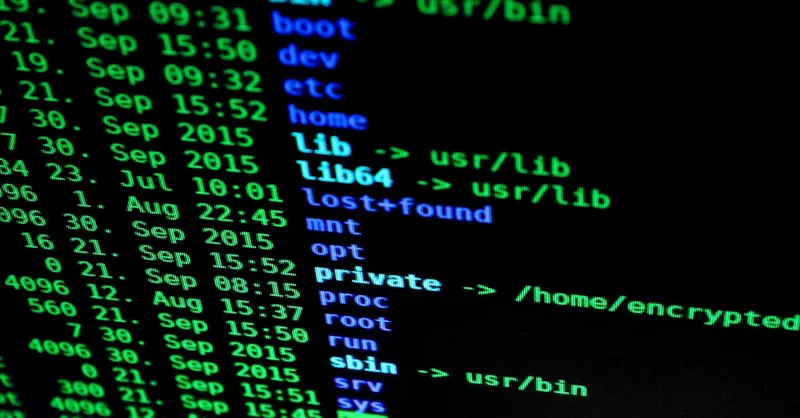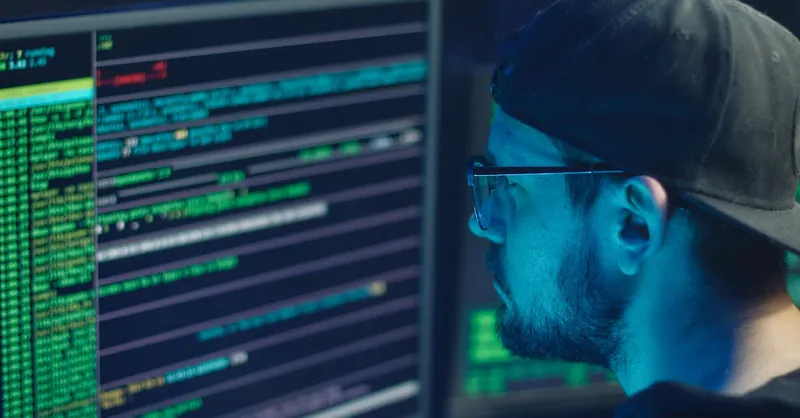Ethical Hacking Myths Debunked: Truths Every Beginner Must Know
Category: Ethical Hacking
Unmasking Ethical Hacking Myths for Aspiring Hackers
If you've recently stepped into the world of ethical hacking or are considering it, you've probably encountered numerous myths that muddy the waters. Whether you're a beginner struggling to separate fact from fiction or an experienced hacker seeking clarity on pervasive misconceptions, this post is crafted just for you. Many resources touch on ethical hacking basics but overlook the falsehoods that might hold you back or misguide your learning path. You've landed here searching for straightforward, reliable insights that debunk these myths so you can advance with confidence. This article peels back layers of misinformation—from misunderstandings about legality and tools to the skills required—helping you build solid foundations and dispel fears rooted in myths. Unlike generic guides, we focus solely on myth busting with clear explanations tied directly to your hacker journey, aiming to empower you to progress smarter and safer. Ready to challenge what you think you know about ethical hacking and sharpen your cybersecurity acumen? Read on to get the truths that will redefine your perspective and ramp up your hacking skills effectively.
- Unmasking Ethical Hacking Myths for Aspiring Hackers
- Understanding Ethical Hacking: Clarifying What It Truly Entails
- Myth 1: Ethical Hackers Are Cybercriminals
- Myth 2: You Need Advanced Technical Skills to Start
- Myth 3: Ethical Hacking Is Only About Using Hacking Tools
- Myth 4: Ethical Hacking Is Illegal or a Grey Area
- Myth 5: Ethical Hackers Can Hack Into Any System Anytime
- Myth 6: You Must Know Every Programming Language to Be an Ethical Hacker
- Myth 7: Ethical Hacking Guarantees Instant Job Placement
- Common Misconceptions About Ethical Hacking Methodologies
- Real Benefits of Ethical Hacking: Why It’s Crucial for Cybersecurity and How It Protects Organizations
Understanding Ethical Hacking: Clarifying What It Truly Entails
Ethical hacking, often misunderstood, is the practice of intentionally probing computer systems, networks, or applications to identify vulnerabilities in a lawful and authorized manner. Unlike malicious hackers, who exploit weaknesses for personal gain or damage, ethical hackers operate with permission, aiming to strengthen security defenses and protect valuable digital assets. This crucial distinction underscores the purpose and legality behind ethical hacking — it is a proactive, constructive approach designed to simulate attacks and reveal potential entry points before real adversaries can exploit them.
To further clarify, ethical hacking involves:
- Authorization: Every test is conducted only after explicit consent from the system owner, ensuring all activities are legal and aboveboard.
- Goal-Driven Testing: The primary aim is to find security flaws and help organizations improve their defenses, not to cause harm or steal information.
- Transparency and Reporting: Ethical hackers provide detailed findings and recommendations, enabling targeted improvements in cybersecurity posture.
Understanding these fundamentals is essential for beginner hackers. It prevents confusion with illegal hacking and fosters a responsible mindset focused on cybersecurity improvement rather than exploitation. By distinguishing ethical hacking from malicious intent, aspiring hackers can build careers grounded in integrity, trust, and valuable skills that protect digital environments today.

Image courtesy of Pixabay
Myth 1: Ethical Hackers Are Cybercriminals
One of the most pervasive myths about ethical hacking is the belief that ethical hackers are no different from cybercriminals. This misconception often stems from a lack of understanding about the legal and ethical boundaries that separate authorized security professionals from malicious hackers. In reality, ethical hackers operate within a strict framework governed by laws, contracts, and professional codes of conduct, making their activities not only legal but essential for safeguarding digital infrastructure.
Legal Boundaries That Ethical Hackers Strictly Follow
Ethical hacking is performed with explicit authorization from the system owner, typically formalized through legal agreements such as a Rules of Engagement (RoE) or a signed contract. This crucial step sets clear parameters on:
- What systems or networks can be tested
- Which testing techniques are permitted
- Scope limitations to prevent unintended disruptions
Without this permission, any attempt to access or probe a system could be considered illegal under laws like the Computer Fraud and Abuse Act (CFAA) in the United States, or similar legislation worldwide. Ethical hackers respect these regulations meticulously, ensuring their testing never crosses into unauthorized territory.
Ethical Standards and Professional Responsibility
Apart from legal compliance, ethical hackers adhere to strict professional standards and codes of ethics established by bodies such as the EC-Council or (ISC)². These standards emphasize confidentiality, non-disclosure of vulnerabilities outside authorized channels, and a commitment to improving the security posture of organizations—not exploiting weaknesses for personal or malicious purposes. Ethical hackers are trusted cybersecurity partners who contribute positively by:
- Identifying vulnerabilities before malicious actors do
- Reporting security findings transparently and responsibly
- Helping build stronger defenses through recommendations
By recognizing the significance of these ethical and legal frameworks, aspiring hackers will understand that ethical hacking is a legitimate, respected profession rooted in responsibility and trust — completely distinct from cybercrime. This clarity is fundamental for beginners to approach hacking with the right mindset and for organizations to confidently engage ethical hackers to protect their digital assets.

Image courtesy of Antoni Shkraba Studio
Myth 2: You Need Advanced Technical Skills to Start
A common misconception among aspiring ethical hackers is that you must possess expert-level technical skills or an extensive background in computer science before you can begin. While advanced knowledge certainly supports growth, the truth is that ethical hacking is highly accessible to beginners, and you can start learning the core concepts effectively even without prior deep technical expertise.
Ethical Hacking Is Built on Foundational Skills You Can Learn Gradually
Ethical hacking primarily requires a solid understanding of key IT and cybersecurity basics, many of which are approachable for newcomers. Essential skills to get started include:
- Basic Networking Concepts: Understanding protocols, IP addressing, DNS, and firewalls helps you grasp how data travels and where vulnerabilities may lie.
- Operating Systems Familiarity: Experience with Windows and Linux environments equips you to navigate and test different systems.
- Programming and Scripting: Learning languages like Python, Bash, or PowerShell enables you to automate tasks and develop custom tools.
- Security Principles: Concepts such as authentication, encryption, and common vulnerabilities form the backbone of ethical hacking knowledge.
Beginner-Friendly Learning Paths and Resources Make Entry Easier
The ethical hacking community highly values continuous learning and offers numerous beginner-friendly resources that bridge the gap from novice to skilled hacker, including:
- Interactive labs and Capture The Flag (CTF) challenges that simulate real-world hacking scenarios safely
- Step-by-step tutorials covering foundational topics and practical tools like Nmap, Wireshark, and Metasploit
- Comprehensive online courses designed for beginners to build skills progressively
Why Mindset and Curiosity Matter More Than Instant Expertise
Beyond technical knowledge, ethical hacking demands a mindset of curiosity, persistence, and problem-solving. Beginners who cultivate these qualities can quickly acquire the skills needed to start identifying vulnerabilities and improving security. Remember, every expert hacker began with the basics — the key is consistent practice and learning.
By dispelling the myth that you need advanced skills to begin, aspiring ethical hackers can approach their learning journey with confidence, knowing that foundational knowledge, the right resources, and a proactive mindset are enough to start making meaningful progress today.

Image courtesy of Antoni Shkraba Studio
Myth 3: Ethical Hacking Is Only About Using Hacking Tools
A widespread myth about ethical hacking is that success hinges solely on knowing how to run popular hacking tools like Nmap, Metasploit, or Wireshark. While these tools are valuable components of an ethical hacker’s arsenal, relying exclusively on software without a deep understanding of the underlying principles drastically limits your effectiveness. Ethical hacking is far more than just clicking buttons in pre-built applications—it requires a strong foundation in knowledge, methodology, and problem-solving skills.
The Importance of Knowledge and Methodology
Ethical hackers must comprehend the technology, protocols, and vulnerabilities they are testing. This means grasping how networks operate, how operating systems handle permissions, and how security mechanisms can be bypassed. Without this knowledge, tools alone become blunt instruments rather than precision instruments. For instance, knowing why a SQL injection works or how an authentication bypass occurs empowers an ethical hacker to adapt techniques and develop custom solutions when out-of-the-box tools fall short.
Moreover, effective ethical hacking follows a methodical approach, including:
- Reconnaissance – Gathering information about the target environment
- Vulnerability Analysis – Identifying security weaknesses through manual inspection and automated scanning
- Exploitation – Validating vulnerabilities carefully and ethically to confirm exploitability
- Post-Exploitation and Reporting – Documenting findings with clear impact analysis and remediation advice
Adhering to such a structured methodology ensures thorough and reliable results, which tools alone cannot guarantee.
Problem-Solving and Critical Thinking Outweigh Tool Familiarity
Ethical hackers frequently encounter new systems, unique security configurations, or zero-day vulnerabilities that are not directly addressed by existing tools. Here, creative problem-solving and critical thinking are essential to analyze complex scenarios, chain exploits, and design custom scripts or techniques. Mastering programming and scripting also complements this skillset, enabling hackers to tailor tools or develop their own, thereby expanding their capabilities beyond standard software.
In summary, ethical hacking is a discipline grounded in intellectual rigor, continuous learning, and strategic thinking. Tools are enablers, not crutches. By nurturing the right knowledge and approach, beginner ethical hackers can move past this myth and position themselves for sustainable success in cybersecurity.

Image courtesy of Antoni Shkraba Studio
Myth 4: Ethical Hacking Is Illegal or a Grey Area
A common and damaging misconception about ethical hacking is that it falls into a legal grey area or is outright illegal. This myth often arises from confusion about hacking activities in general, fueled by high-profile cybercrime stories and media portrayals. In truth, ethical hacking is a fully legal and regulated practice, defined clearly by laws, permissions, and professional certifications that provide both authority and accountability to practicing hackers.
Legal Framework and Explicit Permissions Are Fundamental
The cornerstone of ethical hacking’s legality is explicit authorization. Before any testing begins, an ethical hacker must obtain written consent—often structured as a contract or a Rules of Engagement (RoE)—from the system or network owner. This permission documents the scope, methods, and limitations of testing activities, ensuring that all actions are lawful and controlled. Without such authorization, hacking activities, no matter the intent, can be prosecuted as illegal under computer crime laws like the U.S. Computer Fraud and Abuse Act (CFAA), the UK’s Computer Misuse Act, or similar legislation worldwide.
Organizations also use non-disclosure agreements (NDAs) and security policies to reinforce confidentiality and define the ethical hacker’s responsibilities. This legal clarity protects both the ethical hacker and the organization by:
- Establishing clear boundaries and expectations
- Preventing misunderstandings that could lead to legal disputes
- Ensuring accountability throughout the testing process
Professional Certifications Validate Ethical and Legal Compliance
To bolster trust and competence, many ethical hackers pursue recognized certifications that emphasize both technical skills and legal-ethical standards. Leading certifications include:
- Certified Ethical Hacker (CEH) by EC-Council
- Offensive Security Certified Professional (OSCP)
- GIAC Penetration Tester (GPEN) by SANS Institute
These credentials not only demonstrate technical expertise but also verify the candidate’s understanding of legal frameworks, ethical responsibilities, and best practices in cybersecurity testing. Organizations prefer to engage certified ethical hackers to safeguard their systems while complying with laws and regulations.
Summary of Legality Principles in Ethical Hacking
- Permission is mandatory: No hacking without explicit, documented authorization
- Scope compliance: Activities must strictly adhere to agreed limits
- Ethical conduct: Respect privacy, confidentiality, and responsible disclosure
- Certification adherence: Certifications prove commitment to lawful, ethical testing
By understanding and applying these fundamental laws and permissions, ethical hacking emerges as a legitimate, respected profession that protects organizations from cyber threats while operating fully within legal boundaries. This clarity reassures aspiring hackers that pursuing ethical hacking is both a responsible and legal career path, dispelling fears rooted in misconception and positioning them for success in cybersecurity.

Image courtesy of Tima Miroshnichenko
Myth 5: Ethical Hackers Can Hack Into Any System Anytime
A persistent myth that confuses many beginners is the belief that ethical hackers have carte blanche to hack into any system at any time. This misconception not only undermines the professional ethics integral to cybersecurity but also poses serious legal risks. Ethical hacking is strictly governed by the necessity of explicit authorization and well-defined ethical considerations. Without proper consent, any attempt to access systems—even with good intentions—could be deemed illegal and unethical.
The Crucial Role of Authorization in Ethical Hacking
Ethical hackers must always operate within the boundaries of explicit permission granted by the system owner or authorized entity. This authorization outlines the scope, timeframe, and methods permitted during testing and forms the legal backbone protecting both parties involved. Attempting to hack without this permission is not only unlawful but also contradicts the fundamental principles of ethical hacking, which emphasize trust, responsibility, and respect.
Authorization typically involves:
- Formal agreements such as contracts or Rules of Engagement (RoE) that detail the target systems and permitted techniques.
- Clear communication of the scope and limits to avoid unintended collateral damage or privacy breaches.
- Mutual understanding and documentation to ensure transparent, accountable security assessments.
Ethical Considerations Beyond Legal Permission
Beyond legal consent, ethical hackers adhere to a strict code of conduct that governs their professional behavior. This includes:
- Respecting privacy: Access and data handling must be carefully controlled to protect sensitive information.
- Avoiding harm: Testing should minimize disruptions and never intentionally damage or expose data irresponsibly.
- Responsible disclosure: Vulnerabilities discovered must be reported only to the authorized parties and handled confidentially.
- Continuous professionalism: Maintaining integrity and transparency in all actions distinguishes ethical hackers from malicious actors.
By understanding that ethical hacking is never about unauthorized intrusion but always about authorized, ethical testing, beginners can appreciate the trust and responsibility bestowed on cybersecurity professionals. This clarity helps protect both the ethical hacker and the organizations they serve, fostering a safer digital environment built on respect, legality, and professionalism.

Image courtesy of Antoni Shkraba Studio
Myth 6: You Must Know Every Programming Language to Be an Ethical Hacker
A widespread myth among beginners is the belief that mastering every programming language is a prerequisite to becoming a successful ethical hacker. This misconception can be overwhelming and may discourage many from pursuing ethical hacking altogether. In reality, while programming knowledge is important, ethical hackers do not need to learn all coding languages. Instead, focusing on a select set of programming and scripting languages tailored to cybersecurity tasks will maximize your efficiency and learning curve.
Essential Programming Skills for Ethical Hackers
Ethical hacking involves automating tasks, understanding exploits, and sometimes writing custom scripts or even developing proof-of-concept code. To do this effectively, you should concentrate on these core languages:
-
Python: Widely regarded as the most versatile and beginner-friendly language in cybersecurity, Python offers extensive libraries for automation, penetration testing, and exploit development. It’s ideal for scripting tasks such as scanning, reconnaissance, and report generation.
-
Bash/Shell Scripting: Knowing how to write and manipulate shell scripts on Linux systems is crucial. Many ethical hacking tools and environments rely on shell scripting to automate system tasks and manage processes efficiently.
-
JavaScript: Since many web applications rely heavily on JavaScript, understanding this language helps ethical hackers identify client-side vulnerabilities, such as Cross-Site Scripting (XSS) and DOM manipulation attacks.
-
SQL: Basic familiarity with SQL enables you to understand and test database-driven applications for injection vulnerabilities — one of the most common exploitation vectors.
What About Other Languages?
-
C and C++: While useful for understanding low-level programming and memory management vulnerabilities (e.g., buffer overflows), deep mastery is not mandatory for most beginner ethical hackers. It is beneficial if you plan to focus on exploit development or reverse engineering later on.
-
Java, PHP, Ruby: These can be learned on-demand depending on your specific targets or projects but are not foundational.
Focused Learning Delivers Better Results
Instead of attempting to learn every programming language, prioritize languages that align with your immediate hacking goals and the systems you want to test. A pragmatic approach allows you to quickly build practical skills, understand how attacks work, and start applying your knowledge effectively. Gradually, as you grow in experience, you can expand your programming repertoire based on specialized needs within ethical hacking, such as malware analysis or exploit writing.
By dispelling the myth that you must be a polyglot programmer, aspiring ethical hackers can avoid unnecessary overwhelm and concentrate on acquiring impactful programming skills that directly enhance their hacking capabilities and career prospects.

Image courtesy of Kevin Ku
Myth 7: Ethical Hacking Guarantees Instant Job Placement
A common misconception among aspiring ethical hackers is the belief that simply acquiring some hacking skills or certifications leads to immediate job offers. While ethical hacking can be a rewarding and in-demand career path, it does not guarantee instant employment. Success in landing a cybersecurity role requires a realistic understanding of the competitive job market, continuous learning, and the development of a broad set of skills beyond basic hacking techniques.
Setting Realistic Career Expectations in Ethical Hacking
The cybersecurity field is growing rapidly, but so is the pool of candidates eager to break into ethical hacking roles. Employers look for professionals who demonstrate:
- A strong foundational knowledge of cybersecurity principles and practices, not just proficiency with hacking tools.
- Relevant certifications and hands-on experience, such as internships, Capture The Flag (CTF) competitions, or real-world testing projects.
- Soft skills, including communication, problem-solving, and the ability to work effectively in teams and with stakeholders.
- Continuous professional development to keep pace with evolving threats and technologies through ongoing education and practical training.
Understanding this landscape helps prevent disillusionment and encourages beginners to approach ethical hacking as a journey that requires dedication, resilience, and strategic career planning.
Continuous Learning as a Core Component of Ethical Hacking Careers
Ethical hacking is not a field where you learn once and are set for life. Cybersecurity is dynamic, with new vulnerabilities, attack vectors, and defense mechanisms emerging constantly. To remain competitive and valuable to employers, ethical hackers must:
- Engage in regular skill updates, including mastering new tools, languages, and methodologies.
- Participate in industry communities and events to network and stay informed.
- Pursue advanced certifications and specializations aligned with career goals.
- Build a portfolio of practical projects and documented hacking experiences to showcase capability.
By embracing lifelong learning and maintaining realistic expectations, aspiring ethical hackers position themselves for sustainable careers rather than quick fixes. This mindset ultimately defines professional growth in cybersecurity, ensuring ethical hackers remain indispensable assets in defending digital ecosystems.

Image courtesy of Mikhail Nilov
Common Misconceptions About Ethical Hacking Methodologies
In the journey to becoming an ethical hacker, many beginners encounter myths surrounding the core methodologies of penetration testing, vulnerability assessments, and reporting. These misconceptions can lead to ineffective practices or misunderstandings about the ethical hacking process. To build a strong and credible skillset, it’s crucial to demystify how these methodologies fundamentally work and what ethical hacking truly involves.
Myth: Penetration Testing Is Just Automated Scanning
One of the biggest misconceptions is that penetration testing is merely running automated tools and waiting for results. While automated scanners like Nessus or OpenVAS are helpful for quickly identifying common vulnerabilities, effective penetration testing requires manual validation, deep analysis, and creative exploitation techniques. Ethical hackers combine automated tools with hands-on testing to:
- Verify the accuracy of reported vulnerabilities
- Explore business logic flaws or misconfigurations undetected by scanners
- Chain multiple vulnerabilities to simulate realistic attack scenarios
- Assess the potential impact and likelihood of exploitation
This comprehensive approach ensures that penetration testing goes beyond surface-level scanning to deliver actionable insights that enhance security postures.
Myth: Vulnerability Assessments and Penetration Tests Are the Same
Another widespread myth confuses vulnerability assessments with penetration tests, treating them as interchangeable processes. Understanding their distinct purposes is essential:
| Aspect | Vulnerability Assessment | Penetration Testing |
|---|---|---|
| Purpose | Identify and prioritize known vulnerabilities | Exploit vulnerabilities to demonstrate real attack risks |
| Depth of Analysis | Broad, focusing on detection and reporting | In-depth, including exploitation and impact analysis |
| Tools and Techniques Used | Primarily automated scanners and assessment tools | Combination of automated and manual testing techniques |
| Outcome | Lists of vulnerabilities ranked by severity | Detailed exploitation scenarios and risk evaluations |
While vulnerability assessments provide an important baseline by highlighting weaknesses, penetration tests simulate real-world attacks to reveal how those vulnerabilities could be leveraged, offering a stronger basis for remediation planning.
Myth: Reporting Is Just About Listing Vulnerabilities
A final common myth is that ethical hacking reports are simply lists of technical vulnerabilities without strategic value. In reality, high-quality reporting is a vital part of the ethical hacking methodology and can make or break the usefulness of any security engagement. Effective penetration test and vulnerability assessment reports should:
- Clearly describe findings in technical and business-friendly language
- Quantify risk levels and potential impact on the organization
- Include reproducible steps and evidence demonstrating vulnerabilities
- Offer practical, prioritized recommendations for remediation
- Maintain confidentiality and adhere to professional ethical standards
By dispelling these misconceptions, beginner ethical hackers will better appreciate the rigor, nuance, and professionalism involved in security testing methodologies — paving the way for more effective practice and trusted engagements that deliver real-world cybersecurity improvements.

Image courtesy of Tima Miroshnichenko
Real Benefits of Ethical Hacking: Why It’s Crucial for Cybersecurity and How It Protects Organizations
Ethical hacking plays a vital role in strengthening cybersecurity defenses by proactively identifying and addressing vulnerabilities before malicious hackers can exploit them. Organizations face an ever-increasing volume and sophistication of cyber threats—including ransomware, data breaches, and advanced persistent threats—and ethical hackers act as a crucial line of defense by simulating attacks in a controlled, sanctioned manner. This preventive approach helps organizations reduce risk, enhance system resilience, and comply with regulatory requirements.
Key Benefits of Ethical Hacking for Organizations
-
Early Vulnerability Detection: Ethical hackers uncover hidden security flaws in networks, applications, and infrastructure that automated tools or standard audits might miss. This early detection enables prompt remediation, significantly lowering the likelihood of successful cyberattacks.
-
Improved Security Posture: By systematically testing defenses and simulating realistic attack scenarios, organizations gain actionable insights into their security gaps. This empowers them to implement targeted controls, updating policies, patching software, and refining configurations for stronger protection.
-
Regulatory and Compliance Alignment: Many industries are subject to strict cybersecurity regulations such as GDPR, HIPAA, or PCI-DSS. Ethical hacking helps verify compliance by demonstrating that sufficient security measures are in place, reducing the risk of legal penalties and reputational damage.
-
Cost Avoidance: The financial impact of data breaches—including incident response, legal fees, and loss of customer trust—can be devastating. Investing in ethical hacking preemptively saves organizations significant costs by preventing attacks or minimizing their damage.
-
Building Customer and Stakeholder Trust: Clients and partners are increasingly concerned about data security. Regular ethical hacking engagements signal a proactive security culture, enhancing confidence and competitive advantage in the marketplace.
How Ethical Hacking Shields Organizations Against Cyber Threats
Ethical hackers use a combination of technical expertise, real-world attack techniques, and strategic thinking to replicate the tactics of malicious actors. This simulation allows organizations to:
- Understand how attacks can penetrate defenses and the potential impact on critical assets.
- Test the effectiveness of existing security controls and incident response plans under realistic conditions.
- Prioritize remediation efforts based on risk, focusing resources on the most critical vulnerabilities.
- Foster a continuous improvement loop where insights from testing inform future security investments and staff training.
In short, ethical hacking is not just a technical exercise but a strategic necessity that transforms cybersecurity from reactive defense to proactive resilience, safeguarding organizational assets, data, and reputation in an increasingly hostile digital landscape. For beginner hackers, understanding the real benefits of ethical hacking highlights its importance beyond hacking skills—it’s about making meaningful contributions to protecting digital ecosystems worldwide.

Image courtesy of Tima Miroshnichenko
